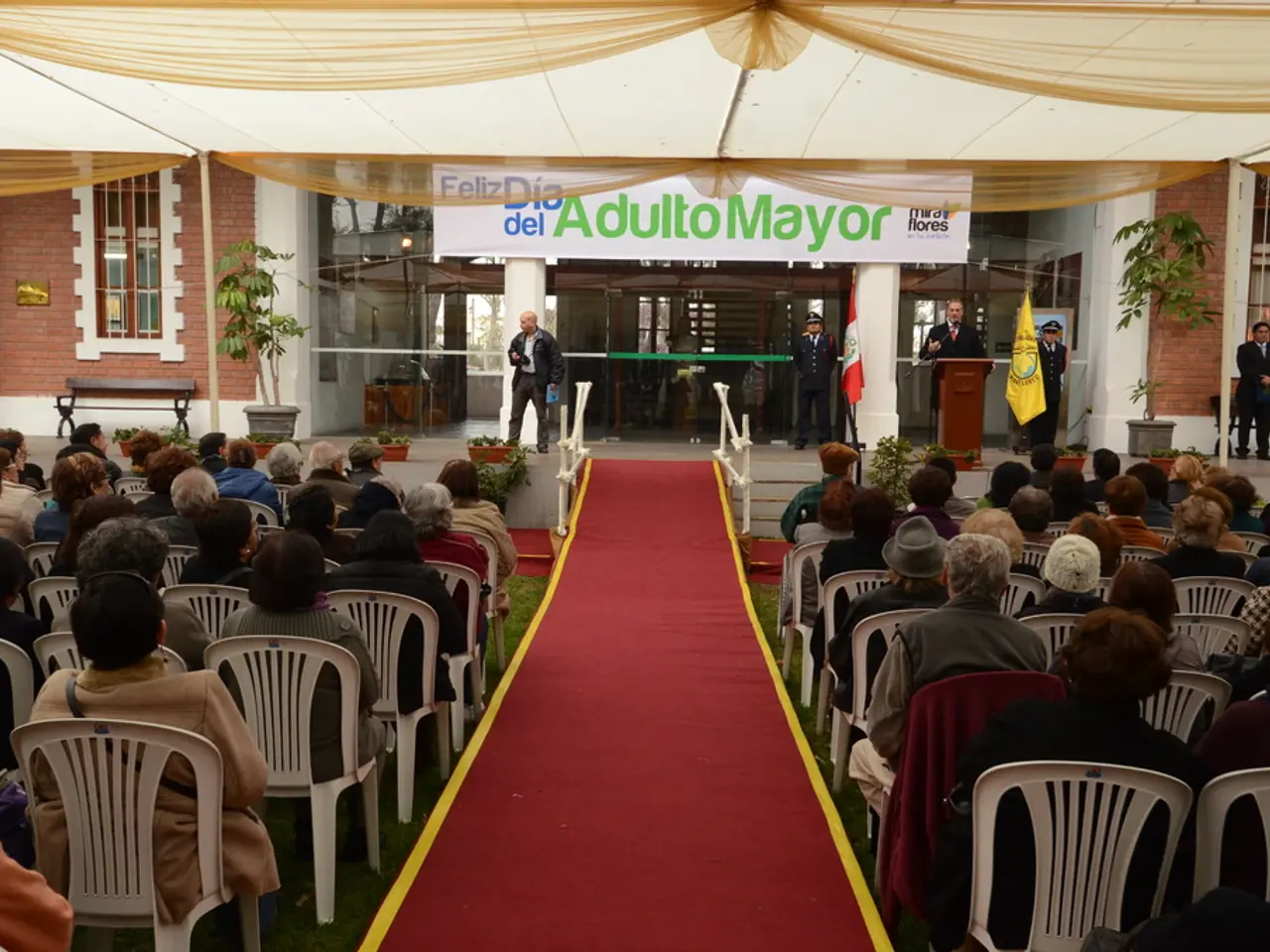Latvian Parliament denies plan to extend voting privileges to non-Latvian citizens
In Latvia, the debate over the voting rights of non-citizens has been a long-standing issue, particularly in the context of local elections. The For Stability! faction has consistently advocated for the inclusion of non-citizens in the Saeima's agenda, proposing amendments to the local government election law [5].
These non-citizens, primarily of Russian descent, have close ties to specific municipalities, such as declaring their place of residence or owning real estate there [2]. However, it's important to note that only Latvian citizens have the right to vote in local elections; non-citizens are excluded from voting and standing for election [1][4].
The proposed amendments, if passed, would grant local election rights to non-citizens of Latvia [6]. However, these amendments have been met with opposition. The "Regarding the status of citizens of the former USSR who possess neither Latvian nor another citizenship" law, relevant to non-citizens, states that non-citizens have the right to join political parties and organizations, but they cannot participate as voters or candidates in local or national elections [3].
The proposed bill has been deemed legally questionable, with MP Agnese Krasta reminding that similar draft laws have been proposed before by the opposition party For Stability! and the Latvia First party leader Ainārs Šlesers [4]. The constitutionality of the exclusion of non-citizens from elections and certain language restrictions was upheld by the Constitutional Court of Latvia, aligning with Latvia's national identity goals and minority rights protections under international law [1].
Despite the efforts to reduce statelessness and broaden citizenship access, such as laws granting automatic citizenship to some children born in Latvia who would otherwise be stateless [1][2], the fundamental rule remains that political electoral rights at all levels require Latvian citizenship [1][4]. This restrictive voting policy reflects Latvia’s prioritization of citizenship as a basis for political rights after regaining independence, balancing state sovereignty and minority protections [1][4].
The Saeima had to repeat its counterarguments against attempts to defend the voting rights of non-citizens, reiterating that the proposed amendments were contrary to the fundamental principles of the Latvian state and its consistent citizenship policy [3]. The amendments were supported only by the proposers themselves, with 75 members of parliament voting against [6]. As a result, the amendments to the law were not passed for consideration by the Saeima.
In Latvia, one can obtain citizenship to participate in political processes, but the journey requires meeting certain criteria, including proficiency in the Latvian language [1]. This restrictive voting policy has been a topic of international critique, with organisations such as the OSCE recommending that Latvia allow non-citizens to vote in municipal elections [4]. However, the state has maintained its citizenship requirement for voting rights.
| Aspect | Details | |------------------------|--------------------------------------------------------| | Proposed amendments | Grant local election rights to non-citizens of Latvia | | Voting eligibility | Only Latvian citizens can vote in local elections | | Non-citizens' rights | Cannot vote or stand in elections; can join parties | | Legal status | Non-citizens are individuals who are not citizens of Latvia or any other country, but who have the right to a non-citizen passport issued by the Latvian government [3] | | Historical context | Large post-Soviet non-citizen population, shrinking via naturalization | | Legal rulings | Constitutional Court supports citizenship-based voting requirement | | International critique | OSCE and experts urge inclusion of non-citizens in local voting, but policy unchanged | | Current status | Amendments not passed for consideration by the Saeima |
- The Saeima, after debate, rejected the proposed amendments that aimed to grant local election rights to non-citizens in Latvia, reinforcing the rule that only Latvian citizens can vote in local elections.
- In Latvia, though non-citizens of Latvian descent have ties to specific municipalities, they are excluded from voting and standing for election in both local and national elections due to their non-citizen status.
- Despite international recommendations from organizations like the OSCE for Latvia to allow non-citizens to vote in municipal elections, the country's persistent policy upholds the citizenship requirement for voting rights, emphasizing its focus on national identity and minority rights protections under international law.







